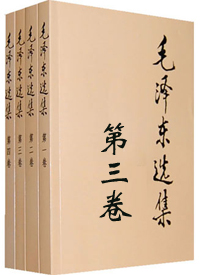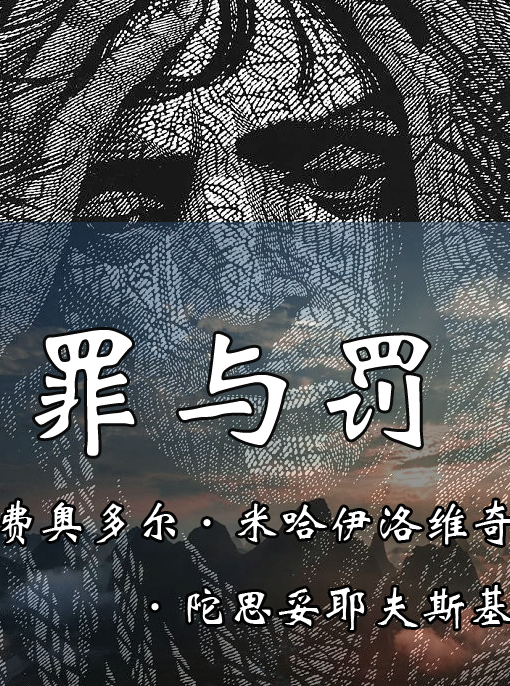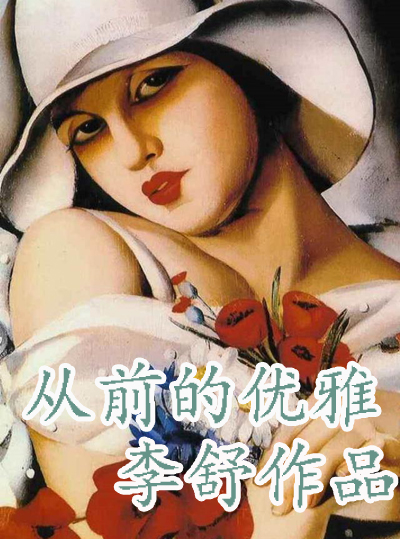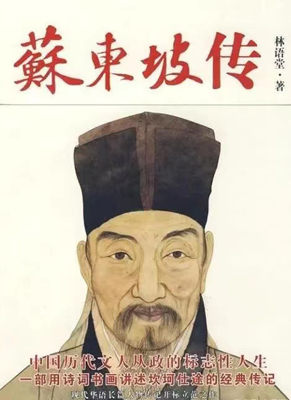The night of the 16th to the 17th of February, 1833, was a blessed night. Above its shadows heaven stood open. It was the wedding night of Marius and Cosette.
The day had been adorable.
It had not been the grand festival dreamed by the grandfather, a fairy spectacle, with a confusion of cherubim and Cupids over the heads of the bridal pair, a marriage worthy to form the subject of a painting to be placed over a door; but it had been sweet and smiling.
The manner of marriage in 1833 was not the same as it is to-day. France had not yet borrowed from England that supreme delicacy of carrying off one's wife, of fleeing, on coming out of church, of hiding oneself with shame from one's happiness, and of combining the ways of a bankrupt with the delights of the Song of Songs. People had not yet grasped to the full the chastity, exquisiteness, and decency of jolting their paradise in a posting-chaise, of breaking up their mystery with clic-clacs, of taking for a nuptial bed the bed of an inn, and of leaving behind them, in a commonplace chamber, at so much a night, the most sacred of the souvenirs of life mingled pell-mell with the tete-a-tete of the conductor of the diligence and the maid-servant of the inn.
In this second half of the nineteenth century in which we are now living, the mayor and his scarf, the priest and his chasuble, the law and God no longer suffice; they must be eked out by the Postilion de Lonjumeau; a blue waistcoat turned up with red, and with bell buttons, a plaque like a vantbrace, knee-breeches of green leather, oaths to the Norman horses with their tails knotted up, false galloons, varnished hat, long powdered locks, an enormous whip and tall boots. France does not yet carry elegance to the length of doing like the English nobility, and raining down on the post-chaise of the bridal pair a hail storm of slippers trodden down at heel and of worn-out shoes, in memory of Churchill, afterwards Marlborough, or Malbrouck, who was assailed on his wedding-day by the wrath of an aunt which brought him good luck. Old shoes and slippers do not, as yet, form a part of our nuptial celebrations; but patience, as good taste continues to spread, we shall come to that.
In 1833, a hundred years ago, marriage was not conducted at a full trot.
Strange to say, at that epoch, people still imagined that a wedding was a private and social festival, that a patriarchal banquet does not spoil a domestic solemnity, that gayety, even in excess, provided it be honest, and decent, does happiness no harm, and that, in short, it is a good and a venerable thing that the fusion of these two destinies whence a family is destined to spring, should begin at home, and that the household should thenceforth have its nuptial chamber as its witness.
And people were so immodest as to marry in their own homes.
The marriage took place, therefore, in accordance with this now superannuated fashion, at M. Gillenormand's house.
Natural and commonplace as this matter of marrying is, the banns to publish, the papers to be drawn up, the mayoralty, and the church produce some complication. They could not get ready before the 16th of February.
Now, we note this detail, for the pure satisfaction of being exact, it chanced that the 16th fell on Shrove Tuesday. Hesitations, scruples, particularly on the part of Aunt Gillenormand.
"Shrove Tuesday!" exclaimed the grandfather, "so much the better. There is a proverb:
"`Mariage un Mardi gras N'aura point enfants ingrats.'[66]
[66] "A Shrove-Tuesday marriage will have no ungrateful children."
Let us proceed. Here goes for the 16th! Do you want to delay, Marius?"
"No, certainly not!" replied the lover.
"Let us marry, then," cried the grandfather.
Accordingly, the marriage took place on the 16th, notwithstanding the public merrymaking. It rained that day, but there is always in the sky a tiny scrap of blue at the service of happiness, which lovers see, even when the rest of creation is under an umbrella.
On the preceding evening, Jean Valjean handed to Marius, in the presence of M. Gillenormand, the five hundred and eighty-four thousand francs.
As the marriage was taking place under the regime of community of property, the papers had been simple.
Henceforth, Toussaint was of no use to Jean Valjean; Cosette inherited her and promoted her to the rank of lady's maid.
As for Jean Valjean, a beautiful chamber in the Gillenormand house had been furnished expressly for him, and Cosette had said to him in such an irresistible manner: "Father, I entreat you," that she had almost persuaded him to promise that he would come and occupy it.
A few days before that fixed on for the marriage, an accident happened to Jean Valjean; he crushed the thumb of his right hand. This was not a serious matter; and he had not allowed any one to trouble himself about it, nor to dress it, nor even to see his hurt, not even Cosette. Nevertheless, this had forced him to swathe his hand in a linen bandage, and to carry his arm in a sling, and had prevented his signing. M. Gillenormand, in his capacity of Cosette's supervising-guardian, had supplied his place.
We will not conduct the reader either to the mayor's office or to the church. One does not follow a pair of lovers to that extent, and one is accustomed to turn one's back on the drama as soon as it puts a wedding nosegay in its buttonhole. We will confine ourselves to noting an incident which, though unnoticed by the wedding party, marked the transit from the Rue des Filles-du-Calvaire to the church of Saint-Paul.
At that epoch, the northern extremity of the Rue Saint-Louis was in process of repaving. It was barred off, beginning with the Rue du Pare-Royal. It was impossible for the wedding carriages to go directly to Saint-Paul. They were obliged to alter their course, and the simplest way was to turn through the boulevard. One of the invited guests observed that it was Shrove Tuesday, and that there would be a jam of vehicles.--"Why?" asked M. Gillenormand--"Because of the maskers."-- "Capital," said the grandfather, "let us go that way. These young folks are on the way to be married; they are about to enter the serious part of life. This will prepare them for seeing a bit of the masquerade."
They went by way of the boulevard. The first wedding coach held Cosette and Aunt Gillenormand, M. Gillenormand and Jean Valjean. Marius, still separated from his betrothed according to usage, did not come until the second. The nuptial train, on emerging from the Rue des Filles-du-Calvaire, became entangled in a long procession of vehicles which formed an endless chain from the Madeleine to the Bastille, and from the Bastille to the Madeleine. Maskers abounded on the boulevard. In spite of the fact that it was raining at intervals, Merry-Andrew, Pantaloon and Clown persisted. In the good humor of that winter of 1833, Paris had disguised itself as Venice. Such Shrove Tuesdays are no longer to be seen now-a-days. Everything which exists being a scattered Carnival, there is no longer any Carnival.
The sidewalks were overflowing with pedestrians and the windows with curious spectators. The terraces which crown the peristyles of the theatres were bordered with spectators. Besides the maskers, they stared at that procession--peculiar to Shrove Tuesday as to Longchamps,-- of vehicles of every description, citadines, tapissieres, carioles, cabriolets marching in order, rigorously riveted to each other by the police regulations, and locked into rails, as it were. Any one in these vehicles is at once a spectator and a spectacle. Police-sergeants maintained, on the sides of the boulevard, these two interminable parallel files, moving in contrary directions, and saw to it that nothing interfered with that double current, those two brooks of carriages, flowing, the one down stream, the other up stream, the one towards the Chaussee d'Antin, the other towards the Faubourg Saint-Antoine. The carriages of the peers of France and of the Ambassadors, emblazoned with coats of arms, held the middle of the way, going and coming freely. Certain joyous and magnificent trains, notably that of the Boeuf Gras, had the same privilege. In this gayety of Paris, England cracked her whip; Lord Seymour's post-chaise, harassed by a nickname from the populace, passed with great noise.
In the double file, along which the municipal guards galloped like sheep-dogs, honest family coaches, loaded down with great-aunts and grandmothers, displayed at their doors fresh groups of children in disguise, Clowns of seven years of age, Columbines of six, ravishing little creatures, who felt that they formed an official part of the public mirth, who were imbued with the dignity of their harlequinade, and who possessed the gravity of functionaries.
From time to time, a hitch arose somewhere in the procession of vehicles; one or other of the two lateral files halted until the knot was disentangled; one carriage delayed sufficed to paralyze the whole line. Then they set out again on the march.
The wedding carriages were in the file proceeding towards the Bastille, and skirting the right side of the Boulevard. At the top of the Pont-aux-Choux, there was a stoppage. Nearly at the same moment, the other file, which was proceeding towards the Madeleine, halted also. At that point of the file there was a carriage-load of maskers.
These carriages, or to speak more correctly, these wagon-loads of maskers are very familiar to Parisians. If they were missing on a Shrove Tuesday, or at the Mid-Lent, it would be taken in bad part, and people would say: "There's something behind that. Probably the ministry is about to undergo a change." A pile of Cassandras, Harlequins and Columbines, jolted along high above the passers-by, all possible grotesquenesses, from the Turk to the savage,Hercules supporting Marquises, fishwives who would have made Rabelais stop up his ears just as the Maenads made Aristophanes drop his eyes, tow wigs, pink tights, dandified hats, spectacles of a grimacer, three-cornered hats of Janot tormented with a butterfly, shouts directed at pedestrians, fists on hips, bold attitudes, bare shoulders, immodesty unchained; a chaos of shamelessness driven by a coachman crowned with flowers; this is what that institution was like.
Greece stood in need of the chariot of Thespis, France stands in need of the hackney-coach of Vade.
Everything can be parodied, even parody. The Saturnalia, that grimace of antique beauty, ends, through exaggeration after exaggeration, in Shrove Tuesday; and the Bacchanal, formerly crowned with spraysof vine leaves and grapes, inundated with sunshine, displaying her marble breast in a divine semi-nudity, having at the present day lost her shape under the soaked rags of the North, has finally come to be called the Jack-pudding.
The tradition of carriage-loads of maskers runs back to the most ancient days of the monarchy. The accounts of Louis XI. allot to the bailiff of the palace "twenty sous, Tournois, for three coaches of mascarades in the cross-roads." In our day, these noisy heaps of creatures are accustomed to have themselves driven in some ancient cuckoo carriage, whose imperial they load down, or they overwhelm a hired landau, with its top thrown back, with their tumultuous groups. Twenty of them ride in a carriage intended for six. They cling to the seats, to the rumble, on the cheeks of the hood, on the shafts. They even bestride the carriage lamps. They stand, sit, lie, with their knees drawn up in a knot, and their legs hanging. The women sit on the men's laps. Far away, above the throng of heads, their wild pyramid is visible.These carriage-loads form mountains of mirth in the midst of the rout. Colle, Panard and Piron flow from it, enriched with slang. This carriage which has become colossal through its freight, has an air of conquest. Uproar reigns in front, tumult behind. People vociferate, shout, howl, there they break forth and writhe with enjoyment; gayety roars; sarcasm flames forth, joviality is flaunted like a red flag; two jades there drag farce blossomed forth into an apotheosis; it is the triumphal car of laughter.
A laughter that is too cynical to be frank. In truth, this laughter is suspicious. This laughter has a mission. It is charged with proving the Carnival to the Parisians.
These fishwife vehicles, in which one feels one knows not what shadows, set the philosopher to thinking. There is government therein. There one lays one's finger on a mysterious affinity between public men and public women.
It certainly is sad that turpitude heaped up should give a sum total of gayety, that by piling ignominy upon opprobrium the people should be enticed, that the system of spying, and serving as caryatids to prostitution should amuse the rabble when it confronts them, that the crowd loves to behold that monstrous living pile of tinsel rags, half dung, half light, roll by on four wheels howling and laughing, that they should clap their hands at this glory composed of all shames, that there would be no festival for the populace, did not the police promenade in their midst these sorts of twenty-headed hydras of joy. But what can be done about it? These be-ribboned and be-flowered tumbrils of mire are insulted and pardoned by the laughter of the public. The laughter of all is the accomplice of universal degradation. Certain unhealthy festivals disaggregate the people and convert them into the populace. And populaces, like tyrants, require buffoons. The King has Roquelaure, the populace has the Merry-Andrew. Paris is a great, mad city on every occasion that it is a great sublime city. There the Carnival forms part of politics. Paris,--let us confess it--willingly allows infamy to furnish it with comedy. She only demands of her masters--when she has masters--one thing: "Paint me the mud." Rome was of the same mind. She loved Nero. Nero was a titanic lighterman.
Chance ordained, as we have just said, that one of these shapeless clusters of masked men and women, dragged about on a vast calash, should halt on the left of the boulevard, while the wedding train halted on the right. The carriage-load of masks caught sight of the wedding carriage containing the bridal party opposite them on the other side of the boulevard.
"Hullo!" said a masker, "here's a wedding."
"A sham wedding," retorted another. "We are the genuine article."
And, being too far off to accost the wedding party, and fearing also, the rebuke of the police, the two maskers turned their eyes elsewhere.
At the end of another minute, the carriage-load of maskers had their hands full, the multitude set to yelling, which is the crowd's caress to masquerades; and the two maskers who had just spoken had to face the throng with their comrades, and did not find the entire repertory of projectiles of the fishmarkets too extensive to retort to the enormous verbal attacks of the populace. A frightful exchange of metaphors took place between the maskers and the crowd.
In the meanwhile, two other maskers in the same carriage, a Spaniard with an enormous nose, an elderly air, and huge black moustache, and a gaunt fishwife, who was quite a young girl, masked with a loup,[67] had also noticed the wedding, and while their companions and the passers-by were exchanging insults, they had held a dialogue in a low voice.
[67] A short mask.
Their aside was covered by the tumult and was lost in it. The gusts of rain had drenched the front of the vehicle, which was wide open; the breezes of February are not warm; as the fishwife, clad in a low-necked gown, replied to the Spaniard, she shivered, laughed and coughed.
Here is their dialogue:
"Say, now."
"What, daddy?"
"Do you see that old cove?"
"What old cove?"
"Yonder, in the first wedding-cart, on our side."
"The one with his arm hung up in a black cravat?"
"Yes."
"Well?"
"I'm sure that I know him."
"Ah!"
"I'm willing that they should cut my throat, and I'm ready to swear that I never said either you, thou, or I, in my life, if I don't know that Parisian." [pantinois.]
"Paris in Pantin to-day."
"Can you see the bride if you stoop down?"
"No."
"And the bridegroom?"
"There's no bridegroom in that trap."
"Bah!"
"Unless it's the old fellow."
"Try to get a sight of the bride by stooping very low."
"I can't."
"Never mind, that old cove who has something the matter with his paw I know, and that I'm positive."
"And what good does it do to know him?"
"No one can tell. Sometimes it does!"
"I don't care a hang for old fellows, that I don't!"
"I know him."
"Know him, if you want to."
"How the devil does he come to be one of the wedding party?"
"We are in it, too."
"Where does that wedding come from?"
"How should I know?"
"Listen."
"Well, what?"
"There's one thing you ought to do."
"What's that?"
"Get off of our trap and spin that wedding."
"What for?"
"To find out where it goes, and what it is. Hurry up and jump down, trot, my girl, your legs are young."
"I can't quit the vehicle."
"Why not?"
"I'm hired."
"Ah, the devil!"
"I owe my fishwife day to the prefecture."
"That's true."
"If I leave the cart, the first inspector who gets his eye on me will arrest me. You know that well enough."
"Yes, I do."
"I'm bought by the government for to-day."
"All the same, that old fellow bothers me."
"Do the old fellows bother you? But you're not a young girl."
"He's in the first carriage."
"Well?"
"In the bride's trap."
"What then?"
"So he is the father."
"What concern is that of mine?"
"I tell you that he's the father."
"As if he were the only father."
"Listen."
"What?"
"I can't go out otherwise than masked. Here I'm concealed, no one knows that I'm here. But to-morrow, there will be no more maskers. It's Ash Wednesday. I run the risk of being nabbed. I must sneak back into my hole. But you are free."
"Not particularly."
"More than I am, at any rate."
"Well, what of that?"
"You must try to find out where that wedding-party went to."
"Where it went?"
"Yes."
"I know."
"Where is it going then?"
"To the Cadran-Bleu."
"In the first place, it's not in that direction."
"Well! to la Rapee."
"Or elsewhere."
"It's free. Wedding-parties are at liberty."
"That's not the point at all. I tell you that you must try to learn for me what that wedding is, who that old cove belongs to, and where that wedding pair lives."
"I like that! that would be queer. It's so easy to find out a wedding-party that passed through the street on a Shrove Tuesday, a week afterwards. A pin in a hay-mow! It ain't possible!"
"That don't matter. You must try. You understand me, Azelma."
The two files resumed their movement on both sides of the boulevard, in opposite directions, and the carriage of the maskers lost sight of the "trap" of the bride.
一八三三年二月十六日至十七日之夜是祝福之夜。在它黑影之上,天门打开了。这是马吕斯和珂赛特新婚之夜。
这是喜气洋洋的一天。
这不是外祖父所梦想的奇妙的佳节,一种有小天使和爱神一起出现在新婚夫妇头上的仙境,不是一件可以装饰在门的上方如同婚礼画里的那种喜事,但这是一次甜蜜而欢畅的婚礼。
一八三三年的结婚仪式和今天的不一样。法国还没有采用英国那种无比细腻的把妻子抢走的做法,一出教堂就溜了,含着羞把幸福隐藏起来,将破产者的行径和《雅歌》①里那种狂喜结合起来。让自己的天堂在驿站马车里颠簸,让喀哒喀哒声来打断自己神秘的心情;选一张小旅店的床当作新床,在普通的按夜计费的寝室里留下一生中最神圣的回忆,再加上和马车夫以及旅店侍女的接触,大家还不懂得这一切是多么贞洁、美妙和端庄得体。
①《雅歌》,《圣经·旧约》中之一篇。
在我们生活的这十九世纪下半叶,市长和他的肩带,神甫和他的背心,法律和上帝都已经不够了,必须加上朗朱莫驿站的车夫;穿着红翻口袖的蓝上衣,饰有铃铛纽扣的金属臂章,绿色皮裤,咒骂着扎起尾巴的诺曼底双马,假的肩章带,打蜡的帽子,扑了粉的粗头发,很长的马鞭和笨重的靴子。法国也还没有模仿英国贵族的那种优雅做法:把磨损了后跟的拖鞋和旧鞋象下冰雹似的砸在新婚夫妇的驿站马车上,学邱吉尔的样,后称马尔波罗式或马尔勃路克式①,他在结婚那天,姑妈的盛怒给他带来了福气。破鞋和旧拖鞋还没有参加到我们的婚礼中来,不用着急,好的习俗继续在扩展,不久就会到来的。
①邱吉尔(John Churchill,duc de Marlborough,1650-1722),约翰·邱吉尔,马尔波罗公爵,英国将军,曾在西班牙获胜。在诗歌中,他被称作“马尔勃路克”。
在一八三三年,一百年以前,人们举行婚礼是从容不迫的。
那个时代,也真怪,大家觉得婚礼是私人的喜事,同时也是社会上的礼节,家长式的喜筵并无损于家中盛典的隆重气氛,允许有极端欢乐情绪的表现,只要是正派的,这对幸福毫无损害,还有,这两个命运的结合在家里开始了,这个结合将产生一个家族,新房从此将证明他们是在此成家立业的,这些都是可尊敬的好事。
人们不因在家中成婚而害臊。
因此婚礼就按照现在已经过时的方式,在吉诺曼先生家中举行。举行婚礼,虽然看来是普通而自然的事,但要去公布通知,申请结婚证,跑市政府、教堂,也不免有些复杂,在二月十六日以前无法准备就绪。
碰巧十六日正是星期二,狂欢节的最后一天,我们提到这一细节,只是因为我们喜欢准确。大家犹豫,踌躇,特别是吉诺曼姨妈拿不定主意。
“狂欢节最后一天!”外祖父大声说,“再妙不过了,俗话说:
狂欢节结婚,
没有不孝的子孙。
不管了!决定十六日!你愿意延期吗,你,马吕斯?”
“当然不愿意!”那情人回答。
“结婚吧。”外祖父说。
因此婚礼就在十六日举行了,尽管大家正在庆祝欢腾的节日。那天下雨,但情人总能见到天上有一角照顾幸福的蓝天,其余的世界都在雨伞之下也就不在乎了。
头天,冉阿让当着吉诺曼先生的面,把那五十八万四千法郎交给了马吕斯。
婚姻采取的是夫妻共有财产制,所以婚书很简单。
从此,冉阿让已不再需要杜桑,珂赛特留下了她,并把她提升为贴身女仆。
关于冉阿让,在吉诺曼家中,已特意为他布置了一间漂亮的卧室,而且珂赛特还说“父亲,我求求你”,这使他很难拒绝,她差不多已得到他的诺言来此居住了。
婚期前几天,冉阿让出了点事,他的右手大拇指被压伤了一点点,但并不严重,他不愿任何人,包括珂赛特在内,为这事操心,他不要人替他包伤或看看他的伤口,但不得不用布把手包起来,用绷带吊着手臂,这使他无法签字。吉诺曼先生是珂赛特的代理保护人,于是就代替了他。
我们不把读者带到市政府和教堂里去,因为很少人跟着一对情人来到这些地方,一般的习惯是当剧情发展到新郎上衣翻领饰孔上插上了一束花,大家对演出就转过身去不看了。我们只想提一提一件发生在从受难修女街到圣保罗教堂路上的小事,这是参加婚礼的人没有注意到的。
当时圣路易街北段末端正在翻修。从御花园街起就不通行了。婚礼的车辆不能直接去圣保罗教堂。必须改变路线,最近的路线是从林荫大道绕过去。来宾中有一个人提醒说这天是狂欢节,那边会有很多车辆。吉诺曼先生问:“为什么?”“因为有化装游行。”“妙极了,”外祖父说,“就打那儿过,这两个年轻人结婚后,就要过严肃的家庭生活,让他们看一下狂欢节的化装作为准备吧。”
他们就从林荫大道走。第一辆婚礼轿式马车中坐着珂赛特和吉诺曼姨妈,吉诺曼先生和冉阿让。马吕斯按照惯例,仍与未婚妻分开,只乘坐第二辆。婚礼的行列从受难修女街出发后,就加入了那漫长的车队,形成了两条没完没了的链条,一条从马德兰教堂到巴士底监狱,另一条又从巴士底监狱到马德兰教堂。
林荫大道上全是戴着假面具的人。尽管不时下着雨,滑稽角色、小丑和傻瓜依然在活动。在一八三三年心情舒畅的冬季,巴黎化装成了威尼斯。今天我们已见不到这种狂欢节了。现在一切现象都是扩大了的狂欢节,所以没有什么狂欢节了。
街道两旁挤满了过路人,窗口挤满了好奇的人。在剧院立柱廊周围的大平台上,沿着边挤满了观众。除了观看化装戴假面具的人外,还要看这狂欢节所特有的、象隆桑那样的车队,这些形形式式的车辆,如出租马车、市民马车、带篷大车、皮篷式两轮小车、单马有篷双轮车,它们顺序前进,按警章严格要求,一辆紧跟一辆,好象在铁轨上行驶一般。在这车队中的任何人,他既是观众又在演出。警察把这两条平行的、朝相反方向前进的络绎不绝的车辆控制在林荫大道的两侧,不让这两条河一样的车流发生任何故障,一条往下游去,一条往上游去,一条走向昂坦大街,一条走向圣安东尼郊区。那些带有徽章的法国贵族院议员和公使的车辆可以在大路中央自由来往。有些精彩而欢快的车队,特别是肥牛①车也有这种特权。在巴黎的狂欢中,英国人也挥着他的马鞭,西麦勋爵坐着游览马车招摇过市,这车被起了一个下等人的绰号。
①肥牛(BoeufGras),狂欢节中盛饰游行的肥牛,表示吃荤的最后一日。
保安警察沿着这两列车队跑来跑去,好象看羊的群狗,车队里有规规矩矩的私人轿式马车,挤满了姨婆和老祖母,在车门口站立着容光焕发的化了装的儿童,七岁的男小丑,六岁的女小所扮的滑稽角色的尊严,态度庄重,犹如官员。
车队不时会在某处发生阻塞,路侧两列车队中的一列就得停下来一直等到疙瘩解开;一辆碍事的车子足以使整个队伍瘫痪,后来又继续前进。
婚礼的车队是在走向巴士底的行列里,沿着大道的右边。走到白菜桥街附近时,停了一下。几乎同时,对面,往马德兰教堂去的那一列车队也停下来了,就在这地方有着一辆载有戴假面具的人的车。
这种车辆,或者说得更确切一点,这些满载戴假面具的人的货车,巴黎人是很熟悉的。如果它们在某个狂欢节或封斋节的中期不出现,人们就会觉得出了事,就会说:“里面肯定有名堂,大概内阁要换人了吧!”一大堆卡桑德①、阿勒甘②、高隆比娜③,高出行人的头,在车中颠簸着,奇形怪状的人物应有尽有,从土耳其人到野人,扶着侯爵夫人的大力士,能使拉伯雷塞住耳朵的满口粗话的女人,同样的情况骂街的泼妇们也会使阿里史托芬垂下眼帘,麻丝做的假发,桃红色的汗衫,衣着讲究的人戴的帽子,扮鬼脸人的眼镜,雅诺④那种会引来蝴蝶的三角帽,冲着行人的怪叫,两拳支在大胯上,姿态大胆放肆,袒着双肩,戴着假面具,真是极其厚颜无耻;这是一伙放任不羁的乱糟糟的角色被一个戴着花冠的马车夫带着游逛,这种车就是这样的一个集体。希腊需要特斯毕斯⑤的四轮载货马车,法国需要瓦代⑥的出租马车。
①卡桑德(Cassandre),意大利喜剧中的老头,总是被周围的人所欺骗。。
②阿勒甘(Arlequin),意大利喜剧中之人物,身穿各色三角形布头拼凑成的衣服,头戴黑色面具。
③高隆比娜(Colombine),意大利喜剧中聪明伶俐的侍女。
④雅诺(Janot),滑稽丑角。
⑤特斯毕斯(Thespis),希腊悲剧始祖,乘车巡回演出,以马车作为戏台。
⑥瓦代(Vadé,1720-1757),法国滑稽歌曲作家、戏剧家。
一切都可以被滑稽地模仿,甚至连模仿的东西也要被模仿。农神节,这个古代美的模仿,由于不断夸张扩大,后来发展成为狂欢节。酒神节,从前的巴克科斯①头戴葡萄藤,沐浴在日光里,露出绝妙的半裸的身体和大理石的双乳,今天却很憔悴,穿着北方褴褛的湿衣,最后变成了狂欢节戴面具的人。
化装车辆这一传统起源于最古的王朝时代,路易十一的开支中就曾拨给宫中法官“图尔城铸的二十苏作三辆化装竞赛马车在街头活动”的费用,今天这群喧闹的人一般是由老式的双轮马车运载的,他们挤在车子的顶层,或者这群活跃的人是由一辆官办的敞篷四轮马车拖着。六人坐的马车载着二十人。有的坐在位子上,有的坐在可折叠的加座上,有的坐在车篷侧面和辕木上。他们甚至骑在马车的灯笼上。有站着的,卧着的,坐着的,蹲着的,挂着腿的,妇女则坐在男子的膝上。在蠕动的人头上很远就能看到象金字塔那样的一堆狂人。这些满载的车辆,在嘈杂的人群中如同一座欢腾的高山,出现了科莱②、巴那尔③和毕龙④,满口黑话更加强了气氛,他们向群众喷出一大串亵渎的粗话。这辆马车因载人过多,显得无比庞大,有着一种胜利的神情。前面人声喧嚷,后面一片混乱。人们在车里怒吼、吊嗓、乱叫、发怒,高兴得前俯后仰;欢乐在咆哮,讽刺喷出火焰,轻松愉快象帝王一样统治着。两个干瘪的女人演着一台剧情发展已到顶点的滑稽戏,这是欢笑的胜利车。
①巴克科斯(Bacchus),酒神。
②科莱(Collé,1709-1783),法国民谣戏剧作家。
③巴那尔(Banard,1674-1765),法国民谣戏剧作家。
④毕龙(Piron,1689-1773),法国诗人及歌谣作家。
这厚颜无耻的笑不是爽朗的笑,的确这种笑是可疑的。这种笑有一项任务,它负责向巴黎人证实狂欢节的来临。
这些下流的车辆,它们使人感到一种莫名其妙的黑暗,会引起哲学家的深思。其中有属于执政者方面的,从那里可以接触到官方和公娼的神秘相似之处。
卑鄙丑态拼凑成逗乐的东西,用下流加无耻来诱惑群众;支持卖淫的私下侦察在和人对峙,它使人开心,群众爱看四轮马车载着这堆活妖怪走过,饰着金箔的敝衣,一半污秽一半光亮,这些人又叫又唱;人们为这由羞耻汇集而成的胜利鼓掌;
如果警察不让这长了二十个头的欢乐水蛇在人群中巡游的话,大家就不认为在过节,这些事实在令人感到可悲。但又有什么办法呢?这些两轮垃圾车装饰着缎带和花朵,被人群的笑声凌辱着又宽恕着。大众的笑是普遍堕落的同谋。有些不健康的节日腐蚀人民,使他们堕为群氓;而群氓和暴君都需要逗乐的小丑。帝王有罗克洛尔①,老百姓则有巴亚斯。当巴黎不是一座卓越的大城时,它就是一座疯狂的大城。狂欢节是政治的一部分。我们应该承认巴黎心甘情愿让无耻在那儿装腔作势。它只向它的大师棗如果它有大师的话棗提出一个要求:“替我把这些污秽抹上脂粉吧。”罗马也有同样的气质,她喜爱尼禄,尼禄是巨人型的装运工。
①罗克洛尔(Roguelaure,1544-1625),法国元帅,以说风趣话取悦路易十四。
我们刚才提到了一辆大型四轮轻便马车,带着一群畸形的蒙面男女,停在大道的左边,碰巧这时结婚的车辆行列也正停在大道右边。从大道那边到这边,蒙面人的车辆看见了对面新娘的马车。
“咦!”一个蒙面人说,“参加婚礼的人。①”
“假的,”另一个说,“我们才是真的。”
①法语“婚礼”(noce)这词,可以是“参加婚礼的人群”,也用在“花天酒地”这一短语中。
距离太远,不便向婚礼的行列打招呼,再说又怕警察来干涉,那两个蒙面人就瞧别处去了。
不到一会儿,整个蒙面车里的人都忙乱起来了,群众开始向他们喝倒彩,这是群众对戴假面具人的队伍的一种亲热的表示;刚才谈话的两个蒙面人就得和同伴们一起对付大家,他们用尽了菜市场惯用的所有的谩骂,用那种武器才勉强回击了群众的唇枪舌剑,蒙面人和群众之间交换了一些可怕的隐喻。
这时,另外两个同车的蒙面人,一个有大鼻子、大黑胡子、模样显老的西班牙人和一个瘦小的骂街女子,她还很年轻,戴着假面具,他们也注意到了婚礼车,当他们的伙伴和过路人在互相对骂时,他们正在低声对话。
他们的私语被嘈杂的声音所掩盖,听不见了,阵雨把敞开的车辆淋湿,二月的风又不温暖,这个骂街的袒胸女子,一边在回答西班牙人的话,一边颤抖着,又咳又笑。
这是他们的对话:
“喂!”
“什么?父亲。”
“你看见这个老头了吗?”
“哪个老头?”
“那儿,在婚礼的第一辆马车里,靠我们这边。”
“那个有黑领结手臂挂着的?”
“不错。”
“怎么呢?”
“我肯定认识他。”
“啊!”
“如果我不认识这个巴黎人,我愿让别人砍下我的头,今生又从没说过‘您’、‘你’、‘我’。”①
①这是段黑话,意思是“我拿脑袋担保,我认得这个巴黎人”。
“今天巴黎只是一个木偶。”
“你弯下腰能看见新娘吗?”
“看不见。”
“新郎呢?”
“这辆车里没有新郎。”
“啊!”
“除非就是另外那个老头。”
“你设法再弯下点腰去,这就能看清新娘了。”
“我办不到。”
“无论如何,这个爪子上有点东西的老头,我肯定认得他。”
“你认得他又有什么用?”
“不知道。也许有用!”
“我对老头不感兴趣。”
“我认得他!”
“随你便去认得他吧。”
“见鬼,他怎么会在婚礼行列中?”
“那我们也一样啊。”
“这婚礼车是从哪儿来的?”
“难道我知道?”
“听着。”
“什么?”
“你应该做件事。”
“什么事?”
“你走下我们的车去跟踪这辆婚礼车。”
“干什么?”
“为了知道它上哪儿去,是什么人的车?快下去,快跑,我的女儿,你年纪轻。”
“我不能离开车子。”
“为什么不能?”
“我是被雇用的。”
“啊,糟了!”
“我替市政府当一天骂街的。”
“不错。”
“如果我离开车子,第一个见到我的警务侦察员就要逮捕我。这你是知道的。”
“是,我知道。”
“今天我是被政府买下的。”
“无论如何,这老头使我烦恼。”
“老头使你烦恼,你又不是一个年轻姑娘。”
“他在第一辆车里。”
“那又怎么样呢?”
“在新娘车里。”
“那又怎么样?”
“因此他是父亲。”
“这与我有什么相干?”
“我告诉你他是父亲。”
“又不是只有这一个父亲。”
“听我说。”
“什么?”
“我嘛,我只能戴着面具出来。在这儿,我是藏着的,别人不知道我在这儿。但是明天就没有面具了。今天星期三是斋期开始。我有被捕的危险。我得钻进我的洞里去。而你是自由的。”
“不太自由。”
“总比我好一些。”
“你的意思是?”
“你要尽量打听到这辆婚礼车到什么地方去?”
“到哪里去?”
“对。”
“我知道。”
“到哪儿去?”
“到蓝钟面街。”
“首先,不是这个方向。”
“那就是到拉白区。”
“也许到别处去。”
“它是自由的。参加婚礼的人是自由的。”
“不仅仅是这点,我告诉你要设法替我了解这婚礼是怎么回事,有这老头在里面,这对新婚夫妇住在哪儿?”
“决不!这才有意思呢。在八天后去找到一家婚礼车在狂欢节路过巴黎的人家难道容易吗?大海捞针!这怎么办得到?”
“不管怎样,要努力。听见没有,阿兹玛?”
两列车队在大道两旁以相反的方向移动,婚礼车逐渐在蒙面车的视野中消失了。







